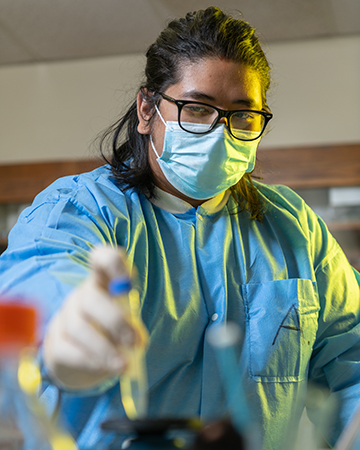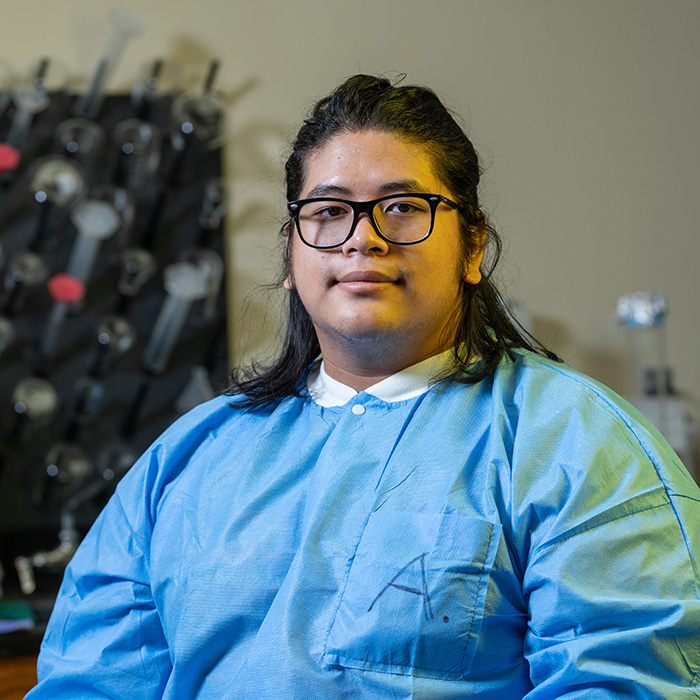Breaking into biochemical research
Ashish Singh is investigating whether the cereal grain sorghum regulates specific proteins that may prevent colon cancer.

A lucky break brought Ashish Singh to Towson University’s MB3 program.
While playing goalie in a high school pick-up soccer game, Singh smashed his right hand into the goalpost while trying to block a shot. The ensuing trip to an orthopedist opened his eyes to the critical role biochemistry plays in healing human fractures.
“I was amazed and started to pay more attention to science,” he says.
Now majoring in molecular biology, biochemistry and bioinformatics, Singh is involved in a collaborative cancer research project with Dr. Dmitriy Smolensky (an MB3-grad himself) at the United States Department of Agriculture, examining the biomolecular intricacies of colon cancer.
The same innate curiosity that led him to TU and his major also propelled him to the laboratory bench.
“ Further investigation may help explain the effects of sorghum on selenoproteins, which are important regulators in prevention and promotion of colon cancer. ”
During his freshman year, Singh attended TU’s Biological Research Symposium, encouraged by his now adviser, Peko Tsuji, associate professor of biology.
Despite being “in over my head,” Singh poured over every poster. “I was intrigued and excited to see all the research happening on our campus,” he says.

The following year he was running biochemical assays in a research project with Tsuji to determine the effects on expression of proteins that have both tumor prevention and promotion properties when treated with sorghum, a cereal with various levels of polyphenols. By 2019 Singh was awarded an undergraduate research grant from the Fisher College of Science and Mathematics, and he presented his preliminary findings at the American Society for Nutrition annual meeting that same year.
This year TU’s Research Symposium included his project: “Effect of High-polyphenol Sorghum Extracts on Gene Expression of Selenoproteins in Colon Cancer.”
Polyphenols, common plant metabolites found in fruits, grains and vegetables, are believed to regulate colon cancer by modulating the antioxidant response which includes selonoproteins.
Singh has studied the gene expression of multiple selonoproteins including TXNRD1 (thioredoxin reductase1) and GPX1 (glutathione peroxidase1) in a colon cancer cell model incubated with high polyphenol sorghum extracts obtained from the USDA.
Preliminary analyses suggest there is an effect on gene expression at a transcriptional level of GPX1 and TXNRD1 in two types of colon cancer cells. Singh wrote in the conclusion of his TU presentation, “Further investigation may help explain the effects of these sorghum extracts on expression of selenoproteins, which are important in tumor prevention and promotion in colon cancer.”